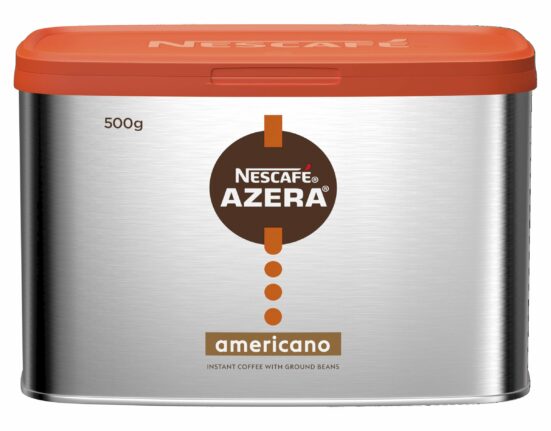In contemporary society, the nuances of our daily rituals have come to be substantial contributors to our overall well-being, and one such ritual is the consumption of coffee. With the proliferation of sophisticated coffee machines, particularly those integrated with an espresso waste pipe, the experience of brewing and enjoying coffee has transformed into a symphonic process of creation and indulgence. This exploration delves into the multifaceted impact of coffee brewing on mood enhancement, weaving together the sensory experience, the psychological implications, and a review of technology such as espresso machines that prioritize both functionality and sustainability through waste management.
The sensory delight of brewing coffee is complex and extraordinary, invoking a plethora of responses that engage multiple senses. At the heart of this experience is the aroma that envelops the environment when fresh coffee beans are ground, releasing volatile compounds that stimulate olfactory receptors. This aromatic introduction, coupled with the sound of the brewing process—the gentle hum of the machine, the gurgling of hot water passing through the coffee grounds—culminates in an almost theatrical presentation.
The Role of Coffee in Enhancing Mood
The consumption of coffee is often synonymous with social interaction and personal rituals. For many individuals, brewing a cup of coffee serves as a form of self-care, a momentary pause amidst the chaotic tempo of modern life. The psychological effects of caffeine, a central element in coffee, are well-documented; it is known to enhance alertness and elevate mood through the release of neurotransmitters such as dopamine and serotonin.
Additionally, engaging in the act of brewing can elicit a sense of accomplishment. As individuals manipulate various variables, from grind size to extraction time, they engage in a mindful practice that fosters a sense of control over one’s environment and wellbeing.
Furthermore, the mood-boosting experience is not restricted to the consumable product; it extends to the tools that one employs. A coffee machine with an espresso waste pipe introduces a layer of environmental consciousness to the ritual, encouraging individuals to engage in sustainable practices. Through proper waste management, users can dispose of coffee grounds efficiently, which can be repurposed for composting or other eco-friendly endeavors. This systematic approach to sustainability not only promotes ecological responsibility but also instills a sense of efficacy that is psychologically rewarding.
The brewing of coffee often acts as a catalyst for creativity. Research indicates that caffeine consumption can stimulate cognitive flexibility and divergent thinking, thereby fostering an environment conducive to innovative thought. Many writers, artists, and professionals have long revered coffee as an essential ally in their creative processes. The routine of preparing coffee, punctuated by the aroma and the act of savoring the beverage, can inspire new ideas, fortifying the mind against distractions.
Sustainability in Coffee Brewing
The advent of technology in coffee machines has accelerated the evolution of how we interact with one of the world’s most cherished beverages. A coffee machine designed with an espresso waste pipe exemplifies a harmonious fusion of convenience and sustainability. The waste pipe functions to collect spent coffee grounds, minimizing the mess often associated with traditional brewing methods.
From a sustainability standpoint, such machines contribute to the circular economy, wherein waste is viewed as a resource. Spent grounds can find myriad repurposing opportunities—from natural fertilizers to skin exfoliants, the potential applications are extensive. Utilizing a machine that incorporates a waste pipe not only enhances the user experience but also aligns with a growing ethos of sustainable living that has pervaded the coffee culture.
As consumers become increasingly aware of their ecological footprints, the integration of a waste management system within coffee machines can significantly alter purchasing behavior. Consumers are urged to select options that reflect their values, thereby creating a demand for machines that excel in both performance and environmental stewardship.
The Ritual of Coffee Brewing as a Mood Enhancer
Brewing coffee is more than a mere convenience; it is an intricate ritual that fosters intentionality and personal expression. The methodical process of measuring, grinding, and brewing allows individuals to engage fully with their senses, cultivating mindfulness—a critical component in mood enhancement.
Different brewing techniques yield distinct sensory outcomes. The tactile experience of using a manual espresso machine, for instance, allows users to feel a connection to the coffee-making process that electric machines may not provide. The empirical nature of pressing down the portafilter, monitoring pressure, and observing the flow of espresso engenders a sense of pride and mastery.
Moreover, the social dimensions of coffee brewing cannot be ignored. Sharing a freshly brewed espresso with friends or family can lead to moments of connection, promoting interpersonal relationships that are vital for emotional health. In this context, a coffee machine with an espresso waste pipe not only facilitates the brewing process but also encourages communal engagement, a factor that plays a crucial role in improving mood and overall well-being.
Furthermore, recent studies suggest that the ambient settings in which coffee is brewed and consumed can significantly affect mood. The aesthetics of a coffee machine, for example, play a role in the overall experience. A well-designed machine not only serves its functional purpose but also contributes to the ambiance of the kitchen or café.
The color scheme, materials, and overall design can influence feelings of joy or tranquility. When individuals are surrounded by aesthetically pleasing elements, they are more likely to experience positive emotions, thereby enhancing the overall coffee-drinking experience.
Conclusion
In summary, the act of brewing coffee with advanced machines, particularly those featuring an espresso waste pipe, transcends mere consumption and penetrates deeper layers of sensory engagement, sustainability, and social interaction. The intricate interplay of aroma, taste, and tactile experiences serves to enhance mood, making coffee a beloved ritual embedded in our daily lives.
Embracing technology that prioritizes sustainability through effective waste management not only responds to environmental concerns but also enriches the brewing experience. Ultimately, the man-machine symbiosis in coffee brewing provides an avenue for personal expression, creativity, and connection, reinforcing the notion that a simple cup of coffee can have profound effects on our mood and well-being.







Leave feedback about this